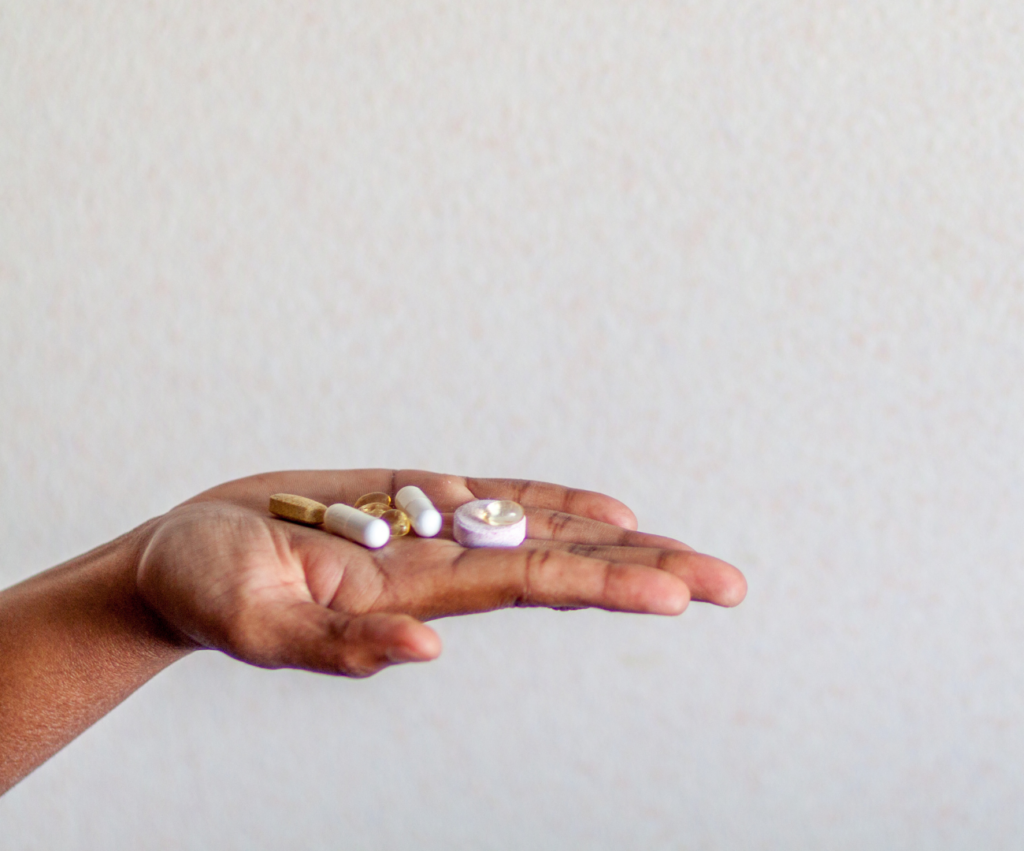
Enough with the swaddles and receiving blankets; a registered nurse and new mom shares the top 15 must-have items that new moms need for themselves.
I became a new mom in January 2021. Throughout my pregnancy, I focused on all things baby: preparing and registering for items supporting his new life and reading endlessly about how to ensure his safety and well-being.
And yet, in hindsight, I wish I had taken just as much time to prepare for the “What to Expect When You Become a Mother” and the postpartum phase of recovery.
👉 Special Offer Just For You
Take 50% off any of our expert written postpartum recovery eBooks with code 'ebook50' at checkout.
"An easy to read and review book with helpful and reassuring information and helpful tips for a safer and more optimal recovery." -KF

Had I known some of these things, I would have known there is a list for new moms that is just as important to support our new life, safety, and well-being.
Things new moms need for themselves
Let’s take a closer look at the 15 things new moms need for themselves after birth. Keep in mind these items aren’t simply “pads and underwear” but are carefully chosen to provide the birthing parent with as much support as they need.
Postpartum recovery kit
Comfortable clothing and bras
Bedside rolling cart
Postnatal vitamins
Relaxation activities
Prepared meals
Helping hands
Healthy boundaries
Household support
Handpicked resources
Postpartum therapist
Lactation consultant
Pelvic floor specialist
Sleep plan
Community support
1. Postpartum recovery kit
Note: this kit may look different depending on your delivery (vaginal or cesarean).
No matter what your birth looked like, you’ll need the following:
Postpartum pads
Disposable underwear (hospitals are the best!)
Pain relievers as prescribed (including) Ibuprofen and Acetaminophen
Stool softeners
If you had a vaginal birth, add a peri bottle, perineal balm, and ice packs.
If you had a c-section birth, add a gentle abdominal binder, high-waisted underwear, and skin salve (scar sheets/balms). You can create your own c-section recovery kit at home.
If breastfeeding or pumping: nipple balm/nursing cups, nipple shields, and pumping accessories may be beneficial.

2. Comfortable clothing and bras
Loose-fitting clothing will be ideal as you physically rest and heal in the first few weeks. Postpartum loungewear will be your best friend right now.
If you choose to breastfeed or pump, button-down or breastfeeding shirts are helpful. Supportive, comfortable, and appropriately fitted nursing, pumping, or bras are essential.
When you move out of the “comfy clothes” phase (does that ever happen?), you can create a nursing capsule wardrobe to make getting dressed much more effortless.
*Note: like baby poop, breastmilk can stain, and you will inevitably have it on you at all times. Accepting this fact now and purchasing some non-toxic high-powered stain remover is essential.
3. Bedside rolling cart
It’s the one-stop shop for baby’s needs (e.g., bottles, pumping equipment, diapers, burp cloths, extra set of clothes for the middle of the night diaper explosion) and mom’s needs (water bottle, snacks, chargers, and whatever else you need).
Favorites: rolling cart, water bottle, hydrating electrolyte powder, and straws
Postpartum tip: hydration is critical for regulating our bodies: organ function, joint mobility, temperature, preventing infections, and improving sleep and mood. Set reminders to drink if you need to.

4. Postnatal vitamins
Your body changed a lot over the last ten months, and it will continue to change in this new phase of motherhood. Support in the form of proper postnatal supplementation is one thing it needs during this season.
A favorite: Anya
5. Relaxation activities
Whether it’s old TV show episodes, new podcasts, music, or audiobooks (you can try Audible for free), have something mindless on hand if you need it during feeds or pump sessions.
Whether it’s a 10-minute walk outside per day or a non-rushed shower, these are non-negotiables for your physical well-being.
6-8. Village support
Prepared meals
Friends and family meal train, fridge stock services, postpartum meal subscriptions, food delivery gift cards–whatever it may be. This is the gift that will keep giving—one less thing to plan or think about in the early days of motherhood.
Helping hands
Identify what you need those extra helping hands to do: hold the baby so you can shower. Do a load of laundry so you can have the baby? Load the dishwasher so you can close your eyes for 30 minutes? Ask for the help that helps you.
Healthy boundaries
Learning to create, set, and hold boundaries in solidarity with your partner is so helpful in the early days of becoming or expanding your family.
Who, when, and what timeframe do visitors have with you? What are you comfortable with? This can change over time. This is not always easy, but so truly important.

9. Dividing household tasks
Life becomes overwhelming when trying to care for yourself and another dependent human being (let alone trying to manage an entire home and family).
Identifying your needs and how best to divide household tasks allows for fairness and harmony to be maintained.
10. Hand-picked resources
The world of social media is the most accessible place to dive into wanting answers to the biggest challenge you are presently facing as a new parent: feeding, sleep; you name it.
Be selective in the content you’re following and engaging with. With so much knowledge at our fingertips, it’s easy to validate or question your decisions, overwhelm and exhaust you.
When in doubt, leverage resources that provide data and allow you to make parenting decisions.

11-15. Well-being team
Postpartum therapist
Dedicate time to identifying a therapist you can contact postpartum if needed. It may be worth conversing with a therapist during pregnancy if you think this is something you may need postpartum.
Navigating the newness, identity shifts, and things out of your control postpartum (e.g., hormonal changes) and how it will affect you should be prioritized for your physical and emotional well-being. Healthy mom = healthy baby.
Lactation consultant
Lactation consultants specialize in the clinical management of breastfeeding. This is so essential if breastfeeding and pumping are something you wish to try.
I learned so much in my virtual Facetime consultation in an hour with my LC about the importance of latch mechanics, feeding goals, and pumping support (appropriate nipple sizing, comfort accessories, and so on).
A favorite resource: Printable nipple measuring tool (did you know shield size matters for effective pumping?)
Pelvic floor specialist
Pelvic floor specialists focus on rehabilitating muscles in the pelvic floor after injury or dysfunction. This is so important for adequately healing pelvic floor muscles after pregnancy and delivery that it can have long-term effects if not addressed.
I highly recommend identifying one early in your postpartum experience to optimize your pelvic floor function.

Sleep plan
This may take some time to establish–however, identifying a plan to allow for a solid stretch of sleep for your healing and mental well-being is paramount.
This may look like a partner or someone taking the “first shift” overnight to provide a bottle of formula or pumped breastmilk so you can have a minimum 4-hour stretch of sleep. This is restorative and promotes your healing.
Again, a healthy mom = a healthy baby.
Mom Tribe, New Parent Groups, Friends, Family
Call it whatever you want and need it to be. Have your list of a few people you can reach out to who understand where you are, who can hold space for your experience and be there for you at your highest of highs and lowest of lows.
There is a reason “it takes a village” became a saying, and it becomes so true when you’re texting your people at 3 am feeding in the dark hours with you or have been there too.
Final thoughts on things new moms need for themselves
Ensuring you’re cared for and have some of the things new moms need for themselves during postpartum can help ease your recovery journey. Don’t be shy and add some of these postpartum items to your baby registry, if required.
Wishing you support during this new transition in all the ways you may find you need during this time, where two things can be true: inexplicable love AND perpetual hard (so very hard).




